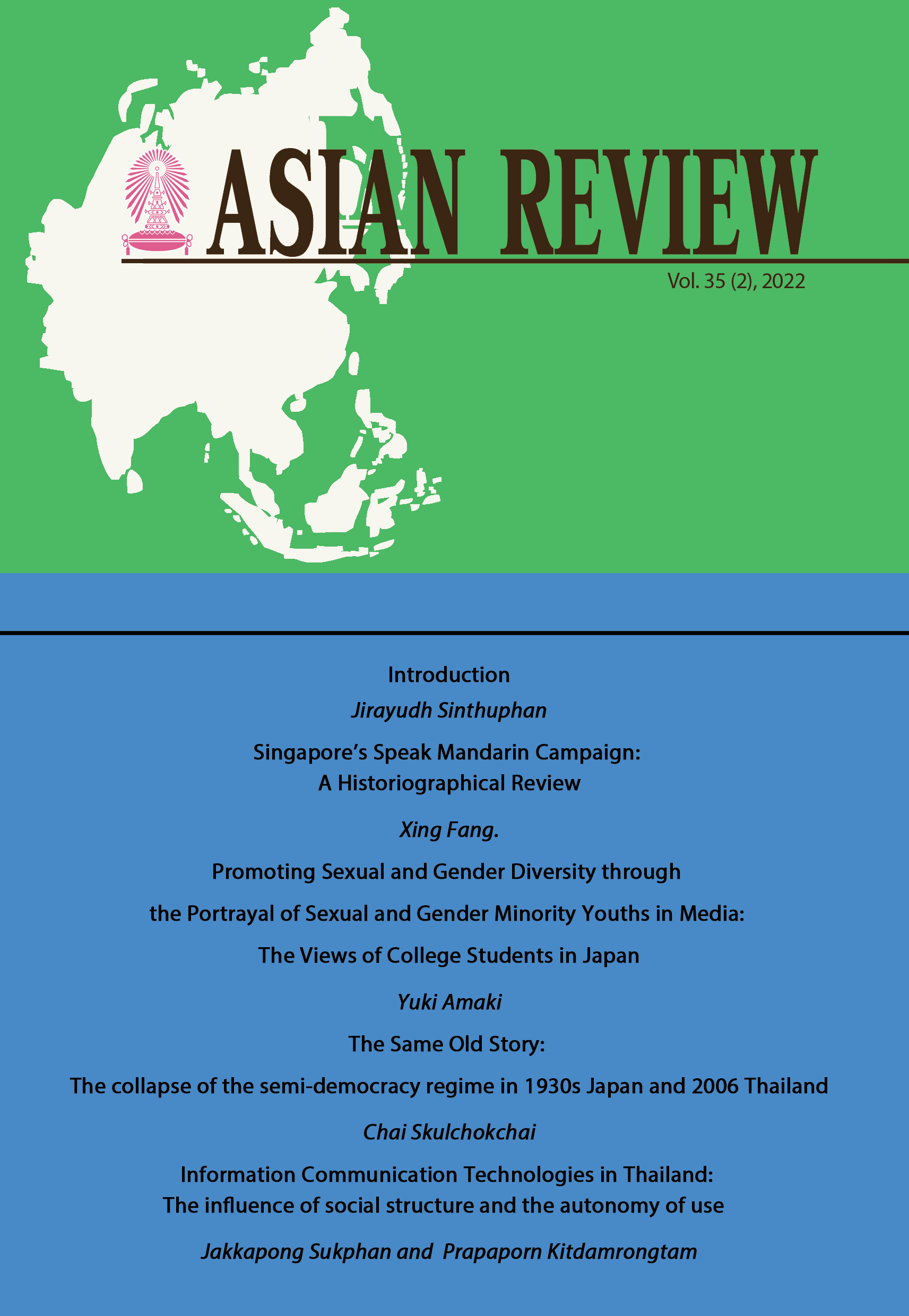Introduction
Abstract
Asia is a problematic concept. What is Asia, other than a way of setting apart a group of non-Western cultures from the West? It is, historically, culturally, and politically, a diverse region that is artificially constructed through a rather generalized perspective. As a result, we often miss some important details in the development of a national state in Asia that has contributed to Asia’s diverse forms of sociopolitical existences and challenges. Articles appearing in this issue of the Asian Review bring to light some of these missing details and provide readers with clearer insights to Asia’s diversity.
In Singapore’s Speak Mandarin Campaign: A Historiographical Review, Xing Fang provides a historiographical review of how Singapore’s language policy has played an instrumental role in its process of nation building since the country’s independence in the 1960s. Singapore’s well-known Speak Mandarin Campaign has evolved from a form of an identity marker into a form of cultural capital that has also contributed to its success as a leading globalized economy. Since the 1980s, Mandarin has become a dominant language in Singapore together with English. The success of the campaign has led to the decline of Chinese dialects, as well as the decline of Singapore’s multiculturalism and ethnic identity loss in exchange for the Singaporean government’s economic pursuits.
Although homosexuality is rarely discussed in Japan, an emerging trend in Japanese media where everyday lives of gay characters is depicted in television drama series, has provided a space for LGBTQ+ issues within Japanese society and has raised awareness of the discrimination of LGBTQ+ people among Japanese youth. Promoting Sexual and Gender Diversity through the Portrayal of Sexual and Gender Minority Youths in Media: The Views of College Students in Japan by Yuki Amaki guides the readers into the thoughts of a group of Japanese college students on popular media content and the changing Japanese perspective of LGBTQ+ people. Despite a few negative responses, there seems to be a unanimous belief that gay-related romantic dramas could be a catalyst for eliminating prejudice and discrimination against LGBTQ+ community among young Japanese.
Next, Chai Skulchokchai investigates Thailand’s turbulent democratization by comparing it to Japan’s democratic processes in the 1930’s in The Same Old Story: The Collapse of the Semi-democracy Regime in 1930s Japan and 2006 Thailand. Despite the events being almost 100 years apart, the article argues that we can still learn from Japan’s past failure. Japan in the 1930’s was a semi-democratic state in the same way as Thailand is at present. Japan’s failed process of democratization lied in its parliamentary structure, that allowed unelected offices a considerable authority over an electoral force, in the belief that there existed a better alternative form of administration than an elected government, as well as in the civilian government’s incapability to assert their control over the military.
Lastly, Jakkapong Sukphan and Prapaporn Kitdamrongtam discusses the issue of digital divide in Thailand. Information Communication Technologies in Thailand: The influence of social structure and the autonomy of use postulates that digital inequality is a form of social inequality. Although Thailand’s digital infrastructure has considerably improved, the issue of unequal access and differentiated use still prevail. People in big cities still have better access to digital infrastructures. It also theorized that social status of individuals also influence their online activities and pursuits. There seems to be considerable digital disparities between social classes, genders, and education levels.
Downloads
Published
How to Cite
Issue
Section
License
Copyright (c) 2022 Institute of Asian Studies Chulalongkorn University.

This work is licensed under a Creative Commons Attribution-NonCommercial-NoDerivatives 4.0 International License.
Published articles are under the copyright of the Instiute of Asian Studies, Chulalongkorn University. Partially or totally publication of an article elsewhere is possible only after the consent from the editors.







